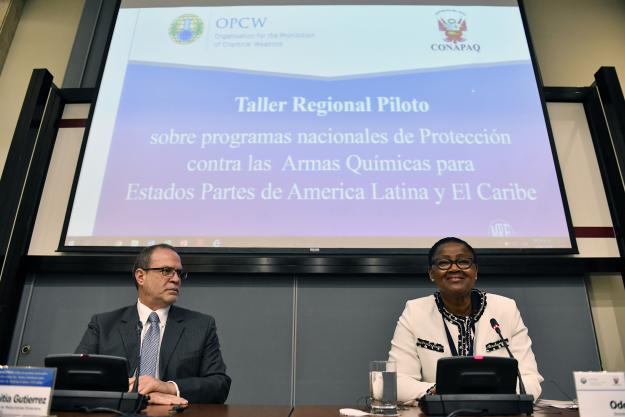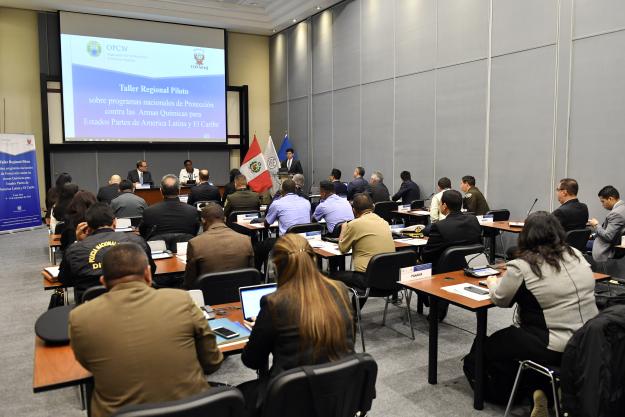
The Deputy Director-General of the Organisation for the Prohibition of Chemical Weapons (OPCW), H.E. Ambassador Odette Melono
THE HAGUE, Netherlands — 13 September 2019 — The Deputy Director-General of the Organisation for the Prohibition of Chemical Weapons (OPCW), H.E. Ambassador Odette Melono, opened a workshop on bolstering protective capabilities against chemical weapons in the countries of Latin America and the Caribbean (GRULAC), and held bilateral meetings with senior government officials during her visit to Lima, Peru, from 9-10 September.
Speaking at the Regional Pilot Workshop on National Protective Programmes Against Chemical Weapons for GRULAC States Parties on 9 September, the Deputy Director-General stated: “Prevention is, of course, the first line of defence, but preparations to deal with the consequences of an incident are essential to ensuring that States Parties’ response measures will be effective.”
She underlined that while the dangers posed by State chemical arsenals are now receding, “other threats are emerging that require us to remain vigilant” and cited the use of toxic chemicals for hostile purposes by non-State actors as “one such hazard that we must all consider”.
The Deputy Director-General met with Peru’s Secretary General in charge of the Vice-Ministerial Office of Foreign Affairs, H.E. Ambassador Manuel Talavera Espinar, who reiterated Peru’s commitment to implementing the Chemical Weapons Convention. She also met with Mr Agustin De Madalengoitia Gutiérrez, Minister Counsellor, Director of Security and Defence at the Ministry of Foreign Affairs ; Vice Minister for Industry at the Ministry of Production, H.E. Mr Oscar Graham Yamahuchi; and the President of the National Association of Industries, Mr Ricardo Márquez Flores.

Background
Peru joined the Chemical Weapons Convention in 1997 and has been an active contributor to the work of the OPCW throughout the years.
As the implementing body for the Chemical Weapons Convention, the OPCW, with its 193 Member States, oversees the global endeavour to permanently eliminate chemical weapons. Since the Convention’s entry into force in 1997, it is the most successful disarmament treaty eliminating an entire class of weapons of mass destruction.
Over 97% of all chemical weapon stockpiles declared by possessor States have been destroyed under OPCW verification. For its extensive efforts in eliminating chemical weapons, the OPCW received the 2013 Nobel Peace Prize.
More Information

